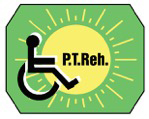


|
Current issue
Archive
Manuscripts accepted
About the journal
Editorial board
Reviewers
Abstracting and indexing
Contact
Instructions for authors
Publication charge
Ethical standards and procedures
Editorial System
Submit your Manuscript
|
4/2023
vol. 37 Original article
The use of digital technologies to promote physical activity in mental healthcare settings: A scoping review
Raquel Simões de Almeida
1
,
Ana Paula Soutelo
1
,
Paula Portugal
1
,
António Marques
1
1.
LabRP-CIR, ESS, Polytechnic of Porto
Advances in Rehabilitation, 2023, 37(4), 29–40
Online publish date: 2023/11/22
Article file
- 2023-04-ar-04-popr.pdf
[0.58 MB]
ENW EndNote
BIB JabRef, Mendeley
RIS Papers, Reference Manager, RefWorks, Zotero
AMA
APA
Chicago
Harvard
MLA
Vancouver
1. Caspersen CJ, Powell KE, Christenson GM. Physical activity, exercise, and physical fitness:Definitions and distinctions for health-related research. Public Health Rep. 1985; 100(2):126–31. 2.
Mahindru A, Patil P, Agrawal V. Role of physical activity on mental health and well-being: A review. Cureus. 2023; 15(1): e33475. 3.
Singh B, Olds T, Curtis R, Dumuid D, Virgara R, Watson A, et al. Effectiveness of physical activity interventions for improving depression, anxiety and distress: An overview of systematic reviews. Br J Sports Med. 2023; 57(18): 1203–09. 4.
Schuch FB, Vancampfort D. Physical activity, exercise, and mental disorders: it is time to move on. Trends Psychiatry Psychother. 2021; 43(3): 177–84. 5.
Beck BR, Daly RM, Singh MAF, Taaffe DR. Exercise and sports science Australia (ESSA) Position statement on exercise prescription for the prevention and management of osteoporosis. J Sci Med Sport. 2017; 20(5): 438–45. 6.
Warburton DER, Bredin SSD. Health benefits of physical activity: a systematic review of current systematic reviews. Curr Opin Cardiol. 2017; 32(5): 541–56. 7.
Ekelund U, Steene-Johannessen J, Brown W, Fagerland M, Owen N, Powell K, et al. Does physical activity attenuate, or even eliminate, the detrimental association of sitting time with mortality? A harmonised meta-analysis of data from more than 1 million men and women. Lancet. 2016; 388(10051): 1302–10. 8.
Firth J, Rosenbaum S, Stubbs B, Gorcznski P, Yung A, Vancampfor D. Motivating factors and barriers towards exercise in severe mental illness: A systematic review and meta-analysis. Psychol Med. 2016; 46(14): 2869–81. 9.
Satyanarayana P, Chandran S. Walk with mobile app to fight depression: An interventional study. Int J Health Allied Sci. 2020; 9: 122–6. 10.
Gerber M, Ludyga S, Mucke M, Colledge F, Brand S, Puhse U. Low vigorous physical activity is associated with increased adrenocortical reactivity to psychosocial stress in students with high stress perceptions. Psychoneuroendocrinology. 2017; 80: 104–13. 11.
Vancampfort D, Firth J, Schuch F, Rosenbaum S, Mugisha J, Hallgren M, et al. Sedentary behavior and physical activity levels in people with schizophrenia, bipolar disorder and major depressive disorder: A global systematic review and meta‐analysis. World Psychiatry. 2017; 16(3): 308–15. 12.
Van Rijen D, Ten Hoor GA. A qualitative analysis of facilitators and barriers to physical activity among patients with moderate mental disorders. J Public Health. 2023; 31: 1401–16. 13.
Ball H, Yung A, Bucci S. Staff perspectives on the barriers and facilitators to exercise implementation in inpatient mental health services: A qualitative study. Ment Health Phys Act. 2022; 22: 100452. 14.
Tong HL, Maher C, Parker K, Pham T, Neves AL, Riordan B, et al. The use of mobile apps and fitness trackers to promote healthy behaviors during COVID-19: A cross-sectional survey. PLOS Digit Health. 2022; 1(8): e0000087. 15.
Cho I, Kaplanidou K, Sato S. Gamified wearable fitness tracker for physical activity: A comprehensive literature review. Sustainability. 2021; 13(13): 7017. 16.
Gordon M, Althoff T, Leskovec J. Goal-setting and achievement in activity tracking apps: A case study of MyFitnessPal. Proc Int World Wide Web Conf. 2019; 2019: 571–82. 17.
Heinbach M, Block A, Hubbard E, Cataldo J, Cooper B, Leutwyler H. Impact of exergames on psychiatric symptoms in older adults with serious mental illness. Aging Ment Health. 2021; 25(12): 2229–34. 18.
Shameli A, Althoff T, Saberi A, Leskovec J. How Gamification Affects Physical Activity: Large-scale Analysis of Walking Challenges in a Mobile Application. Proc Int World Wide Web Conf. 2017; 2017: 455–63. 19.
Ozdamli F, Milrich F. Positive and negative impacts of gamification on the fitness industry. Eur J Investig Health Psychol Educ. 2023; 13(8): 1411–22. 20.
Tu R, Hsieh P, Feng W. Walking for fun or for “likes”? The impacts of different gamification orientations of fitness apps on consumers’ physical activities. Sport Manag Rev. 2019; 22: 682–93. 21.
Silva BMC, Rodrigues JJPC, De La Torre Díez I, López-Coronado M, Saleem K. Mobile-health: A review of current state in 2015. J Biomed Inform. 2015; 56: 265–72. 22.
Shamseer L, Moher D, Clarke M, Ghersi D, Liberati A, Petticrew M, et al. Preferred reporting items for systematic review and meta-analysis protocols (PRISMA-P) 2015: elaboration and explanation. BMJ. 2015; 350: g7647. 23.
Arksey H, O’Malley L. Scoping studies: Towards a methodological framework. Int J Soc Res Methodol. 2005; 8(1): 19–32. 24.
Naslund JA, Aschbrenner KA, Bartels SJ. Wearable devices and smartphones for activity tracking among people with serious mental illness. Ment Health Phys Act. 2016; 10: 10–7. 25.
Lee D, Frey G, Cothran D, Harezlak J, Shih P. Effects of a gamified, behavior change technique–based mobile app on increasing physical activity and reducing anxiety in adults with autism spectrum disorder: Feasibility randomized controlled trial. JMIR Form Res. 2022; 6(7): e35701. 26.
Son C, Hedge S, Markert C, Zahed K, Sasangohar F. Use of a mobile biofeedback app to provide health coaching for stress self-management: Pilot quasi-experiment. JMIR Form Res. 2023; 12(7): e41018. 27.
Naslund JA, Aschbrenner KA, Marsch LA, McHugo GJ, Bartels SJ. Facebook for supporting a lifestyle intervention for people with major depressive Disorder, bipolar disorder, and schizophrenia: an exploratory study. Psychiatr Q. 2018; 89(1): 81–94. 28.
Macias C, Panch T, Hicks YM, Scolnick J, Weene DL, Ongur D, et al. Using smartphone apps to promote psychiatric and physical well-being. Psychiatr Q. 2015; 86(4): 505–19. 29.
Lambert JD, Greaves CJ, Farrand P, Price L, Haase A, Taylor A. Web-based intervention using behavioral activation and physical activity for adults with depression (The eMotion study): Pilot randomized controlled trial. J Med Internet Res. 2018; 20(7): e10112. 30.
Haller N, Lorenz S, Pfirrmann D, Koch C, Lieb K, Dettweiler U, et al. Individualized web-based exercise for the treatment of depression: Randomized controlled trial. JMIR Ment Health. 2018; 5(4): e10698. 31.
Sawyer C, Hassan L, Sainsbury J, Carney R, Bucci S, Burgess H, et al. Using digital technology to promote physical health in mental healthcare: A sequential mixed‐methods study of clinicians’ views. Early Interv Psychiatry. 2023 (Online ahead of print). 32.
Okobi OE, Sobayo TO, Arisoyin AE, Adeyemo D, Olaleye KT, Nelson CO, et al. Association between the use of wearable devices and physical activity among US adults with depression and anxiety: Evidence from the 2019 and 2020 Health Information National Trends Survey. Cureus. 2023; 15(5): e39521. 33.
Kiper P, Przysiężna E, Cieślik B, Broniec-Siekaniec K, Kucinska A, Szczgit J, et al. Effects of immersive virtual therapy as a method supporting recovery of depressive symptoms in post-stroke rehabilitation: Randomized controlled trial. Clin Interv Aging. 2022; 17: 1673–85. 34.
Vieira Á, Melo C, Machado J, Gabriel J. Virtual reality exercise on a home-based phase III cardiac rehabilitation program, effect on executive function, quality of life and depression, anxiety and stress: A randomized controlled trial. Disabil Rehabil Assist Technol. 2018; 13(2): 112–23. 35.
Jo G, Rossow-Kimball B, Park G, Lee Y. Effects of virtual reality exercise for korean adults with schizophrenia in a closed ward. J Exerc Rehabil. 2018; 14(1): 39–48. 36.
Saito T, Suzuki H, Kishi A. Predictive modeling of mental illness onset using wearable devices and medical examination data: Machine learning approach. Front Digit Health. 2022; 14(4): 861808. 37.
Thompson C, Brook M, Hick S, Miotti C, Toong R, McVeigh JA. Physical activity, sedentary behaviour and their correlates in adults with autism spectrum disorder: a systematic review. Rev J Autism Dev Disord. 2023; 10: 546–62. 38.
Roempler J, Petzold MB, Bendau A, Plag J, Strohle A. Tracking changes in physical activity during inpatient treatment in a psychiatric clinic in Germany by asking two simple questions. Eur Arch Psychiatry Clin Neurosci. 2023; 273(4): 983–94. 39.
Cole-Lewis H, Ezeanochie N, Turgiss J. Understanding health behavior technology engagement: Pathway to measuring digital behavior change interventions. JMIR Form Res. 2019; 3(4): e14052. 40.
O’Brien HL, Toms EG. What is user engagement? A conceptual framework for defining user engagement with technology. J Assoc Soc Inf Sci Technol. 2008; 59(6): 938–55. 41.
Saleem M, Kühne L, De Santis KK, Christianson L, Brand T, Busse H. Understanding engagement strategies in digital interventions for mental health promotion: scoping review. JMIR Ment Health. 2021; 8(12): e30000. 42.
Borghouts J, Eikey E, Mark G, De Leon C, Schueller SM, Schneider M, et al. Barriers to and facilitators of user engagement with digital mental health interventions: systematic review. J Med Internet Res. 2021; 23(3): e24387. 43.
Simões de Almeida R, Marques A. User engagement in mobile apps for people with schizophrenia: A scoping review. Front Digit Health. 2023; 4: 1023592. 44.
Alkhaldi G, Hamilton FL, Lau R, Webster R, Michie S, Murray E. The effectiveness of prompts to promote engagement with digital interventions: a systematic review. J Med Internet Res. 2016; 18(1): e6. 45.
Litvin S, Saunders R, Maier MA, Lüttke S. Gamification as an approach to improve resilience and reduce attrition in mobile mental health interventions: A randomized controlled trial. PLoS one. 2020; 15(9): e0237220. 46.
Peng X, Menhas R, Dai J, Younas M. The COVID-19 pandemic and overall wellbeing: mediating role of virtual reality fitness for physical-psychological health and physical activity. Psychol Res Behav Manag. 2022; 15: 1741–56. 47.
Koomen LEM, Velasquez P, D’Agata F, Deenik J, Cahn W. Exercise via videoconferencing for people with severe mental illness during COVID-19 times: A feasibility study. Adv Phys Educ. 2021; 11(2): 239–45. 48.
Greenhalgh T, Wherton J, Papoutsi C, Lynch J, Hughes G, A'Court C, et al. Beyond adoption: A new framework for theorizing and evaluating nonadoption, abandonment, and challenges to the scale-up, spread, and sustainability of health and care technologies. J Med Internet Res. 2017; 19(11): e367. 49.
Borges Do Nascimento IJ, Abdulazeem H, Vasanthan LT, Martinez EZ, Zucoloto ML, Ostengaard L, et al. Barriers and facilitators to utilizing digital health technologies by healthcare professionals. Npj Digit Med. 2023; 6(1): 161. 50.
Ng MM, Firth J, Minen M, Torous J. User engagement in mental health apps: A review of measurement, reporting, and validity. Psychiatr Serv. 2019; 70(7): 538–44.
This is an Open Access journal, all articles are distributed under the terms of the Creative Commons Attribution-NonCommercial-ShareAlike 4.0 International (CC BY-NC-SA 4.0). License (http://creativecommons.org/licenses/by-nc-sa/4.0/), allowing third parties to copy and redistribute the material in any medium or format and to remix, transform, and build upon the material, provided the original work is properly cited and states its license.
|
    |